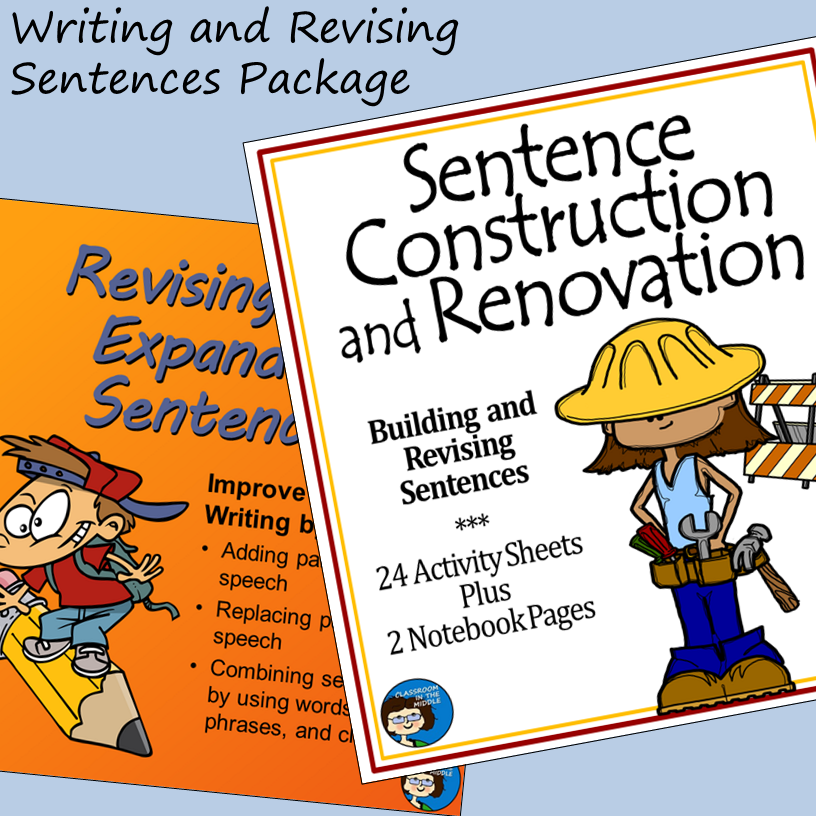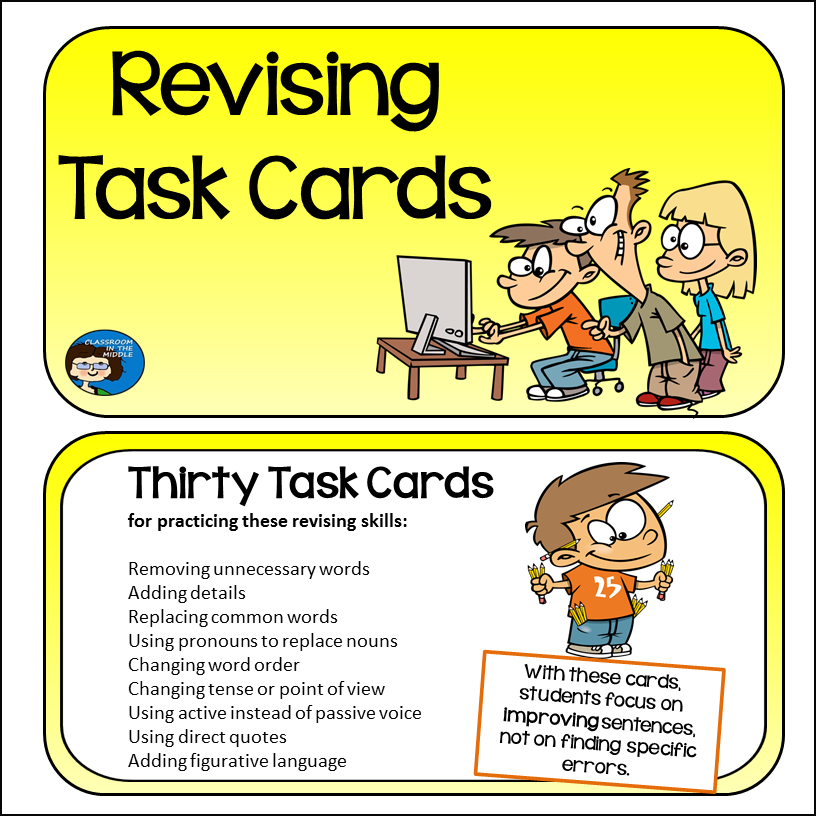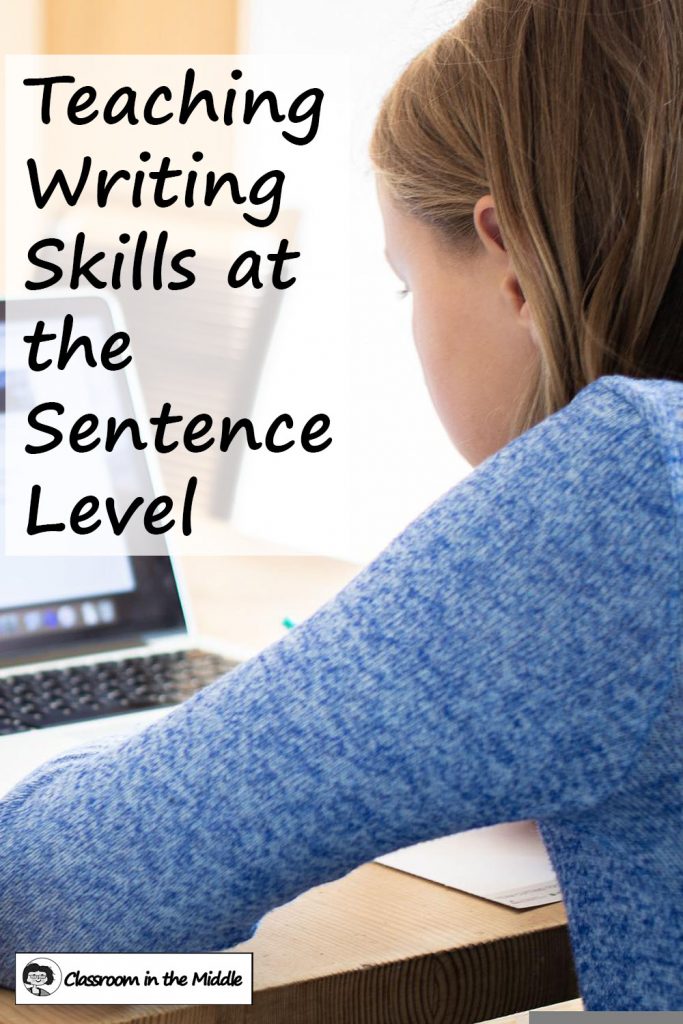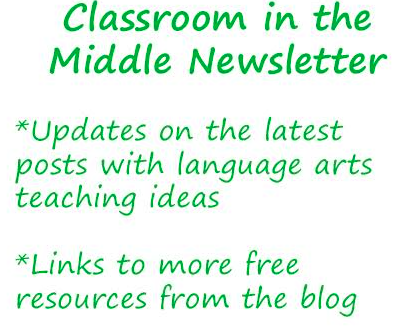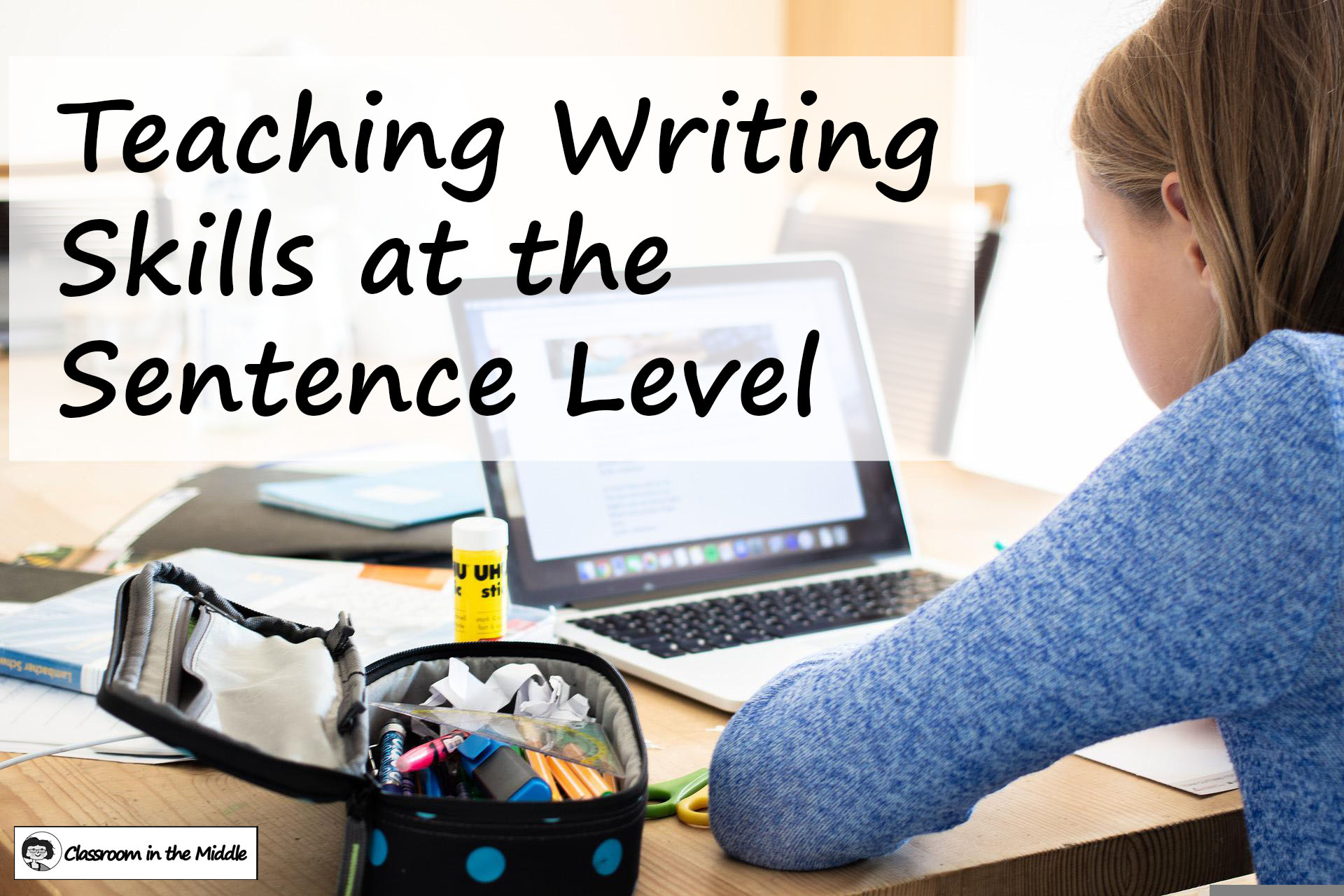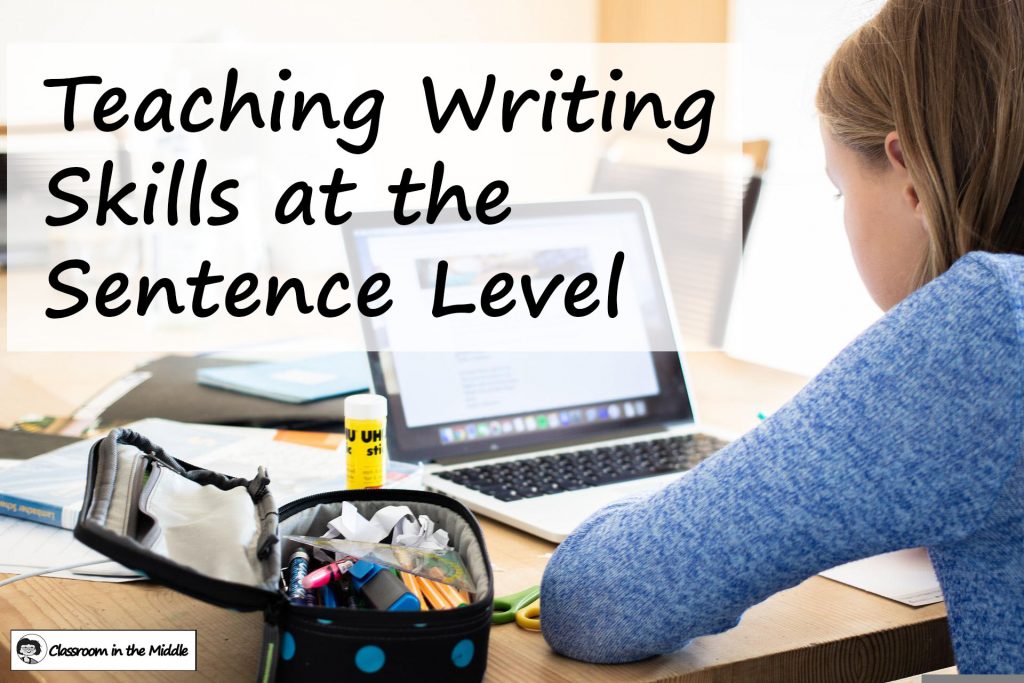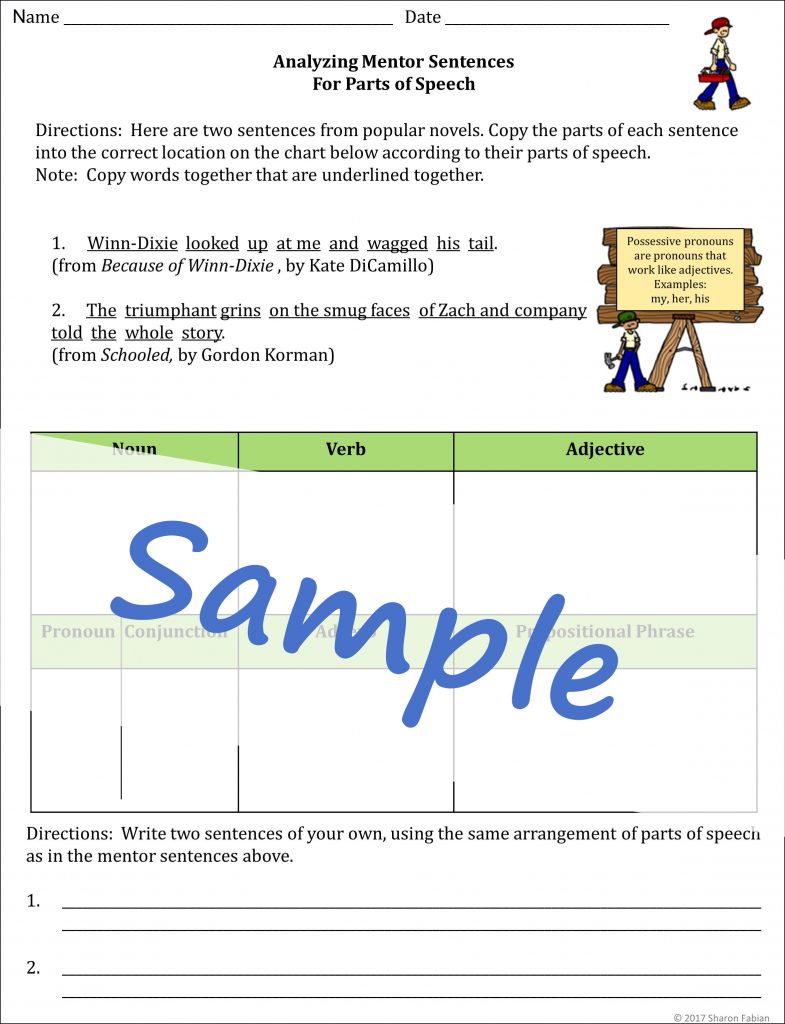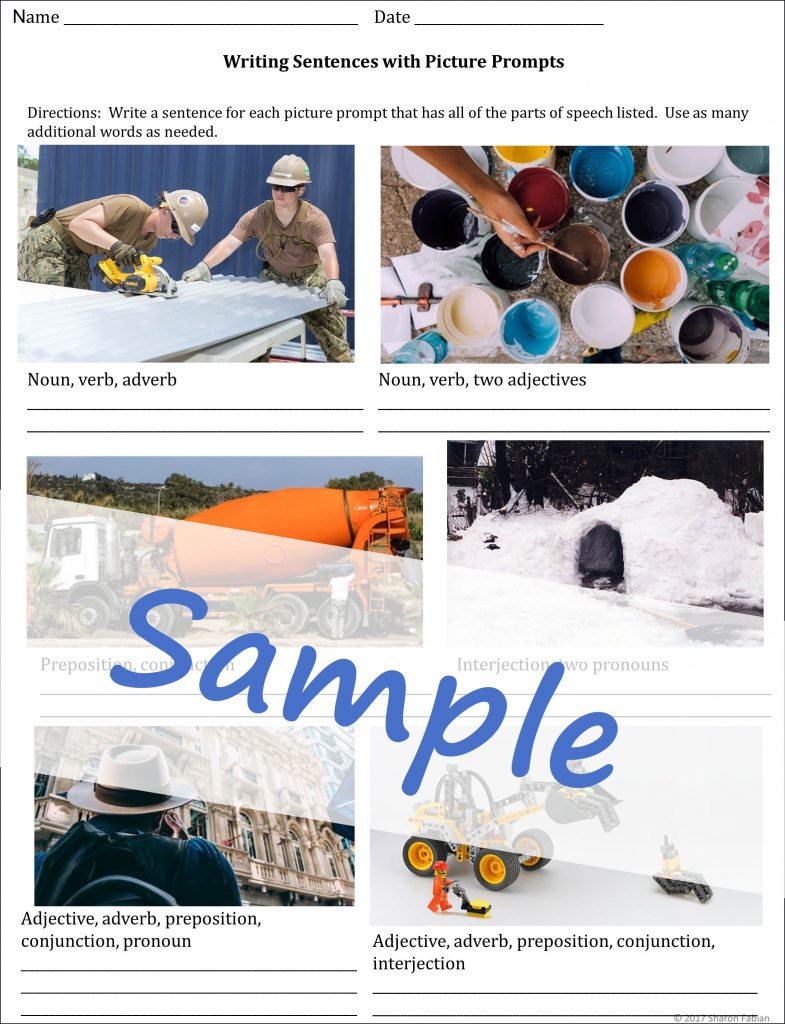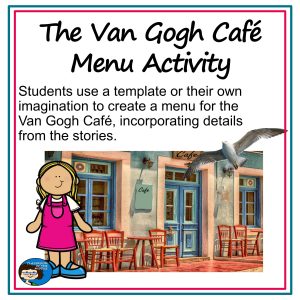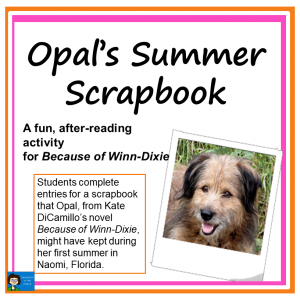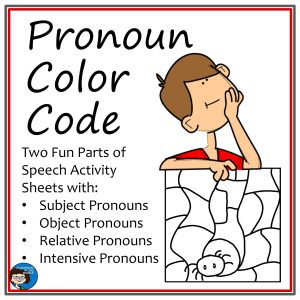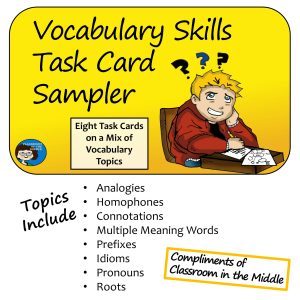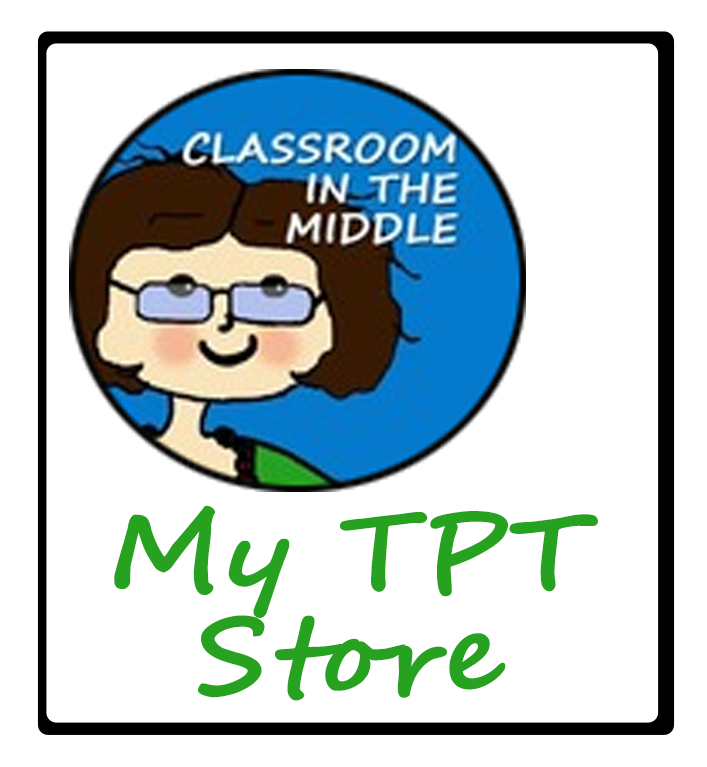Middle schoolers are NOT too old to work on writing at the sentence level. In fact, sentences can be perfect for teaching more advanced writing skills like revising and editing!
There are lots of ways to do this. Single sentence lessons can be planned for studying mentor sentences, for writing practice, and for editing skills such as revising.
Studying Mentor Sentences
Sentences from a favorite novel, short story, or non-fiction article all provide great examples for students. Starting with a favorite text, it’s easy to find sentences that are correct, well-written, and interesting to use as models for student writing. Mentor sentences can be especially helpful as examples of writing with figurative language and imagery. Where better to find a sentence with a unique metaphor, a great example of personification, or some really descriptive adjectives than a story that your class has just enjoyed reading together!
Mentor sentences can also be studied by having students identify particular elements of writing in them such as certain parts of speech, prepositional phrases, or types of conjunctions – just to name a few.
One challenging activity would be to have students identify parts of speech and other elements such as prepositional phrases in mentor sentences and then write their own sentences following the same pattern. This activity sheet, from my Writing and Revising Sentences package, is an example.
Writing Sentences
Single-sentence writing assignments can be both instructive and fun! Here are some ideas.
- Write a simple sentence about a cell phone with three adjectives.
- Write a simple sentence about a friend with an adjective, an adverb, and a preposition.
- Write a compound sentence about a school sport using a coordinating conjunction.
- Write a complex sentence about something you learned in history class using a subordinating conjunction.
- Write a sentence about your school cafeteria that includes an interjection and a prepositional phrase.
- Write a sentence about something that grows in a garden which includes a metaphor.
- Write a sentence about an old car that includes personification.
- (Just for fun!) Write a sentence that includes all eight parts of speech.
Another type of starter that should generate some interesting sentences from your students is a set of picture prompts. Here is an example from the same package.
Revising
While middle school or upper elementary students seldom spend time revising their one-sentence writings (such as answers to questions on a worksheet), practicing on single sentences can be an effective way to hone their skills by learning what to look for when they are revising.
One go-to revising activity is to either add descriptive words to a sentence or to replace words that are already there with better, more expressive words. Of course, you don’t need to limit the activity to adjectives. Kids can also add or replace adverbs, and they could probably replace any part of speech but nouns and verbs work especially well. Verbs in particular always seem to have plenty of appropriate synonyms to choose from. Or, using sentences that you create for the purpose, they could replace nouns that are repeated too often with pronouns.
Of course, you don’t need to limit the activity to single words. How about expanding sentences with prepositional phrases or subordinate clauses. Or make sentences flow better by combining simple sentence into compound ones.
There are so many options! If you are interested in more about revising, I’ve included additional activities for specific types of revisions in my Revising Task Cards.
Of course, there are even more writing activities at the sentence level that would make great lessons, (We haven’t even mentioned proofreading yet!), but whatever language arts skill you choose to work on, one thing is for sure – working at the sentence level will provide good practice in a more fun, easier way than jumping right into a long writing assignment!
Resources
